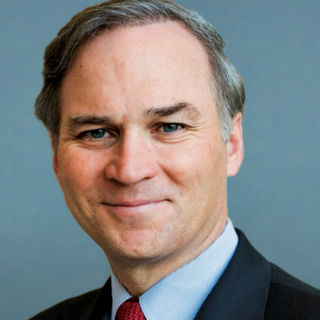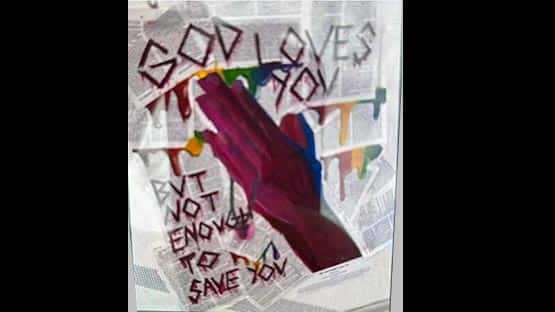
Today, these 31 words make up one of the most widely known sentences in America. It is used in courtrooms, classrooms, on coins, and in government buildings across the country.
The phrase may be common, but there is nothing ordinary about it. Those 31 words are rich with meaning. Most importantly, the Pledge gives us a succinct definition of the fundamental principles of American democracy, and there is much we can be reminded of when we recite or hear it. With a tumultuous week in Congress behind us, and both leadership turmoil and grave budget challenges ahead, these words not only inspire us, they guide us forward. Here’s a look at the phrases of this national symbol and what it means for our nation today.
“I pledge allegiance,” The pledge begins with a simple but powerful declaration for citizens of our nation. Allegiance is a commitment, but the allegiance spoken of in our Pledge is unique. The Pledge reminds us that our allegiance is not to a ruler or a monarch, but rather to a set of core values. The act of allegiance itself is an option, something to be freely committed by its people. Even the recitation of the pledge itself is voluntary because we are each afforded the right to say it or not. This kind of allegiance is powerful because it is a choice.
Abraham Lincoln said, “I like to see a man proud of the place in which he lives. I like to see a man live so that his place will be proud of him.” Today, our Pledge offers a challenge to our government’s leaders – to commit to making decisions that strengthen our nation’s core values, so that Americans remain proud of the place in which they live.
“to the Flag of the United States of America,” After September 11, three New York City firefighters raised the American flag on top of the smoldering rubble at Ground Zero. The symbol of patriotism cut through the gray devastation and offered hope to an America that was craving it. Decades earlier in a similar act, five Marines and a Navy hospital corpsman hoisted Old Glory on top of Mount Suribachi at the Battle of Iwo Jima. Every day, visitors at Arlington National Cemetery place small American flags beside white grave markers.
Ask any of these individuals what went through their minds when they raised the stars and stripes, they probably won’t say anything about the flag itself. Instead they would describe values: freedom, hope, liberty, unity.
Our flag is more than just a cultural symbol for our nation. It is a representation of the freedoms that set us apart from other nations around the world. In our nation, every person is entitled to life, liberty, and the pursuit of happiness. There is no other flag in the world like it. Today, it reminds us that despite all that is wrong with our nation – no matter the turmoil and challenges ahead — there is more that is right and good. There is more worth fighting for.
“and to the Republic for which it stands,” As citizens of this nation, we are afforded guaranteed rights: the right to due process of law, the right to vote, the right to be free. Because of those rights, America today serves as a pillar of strength and a beacon of hope to millions around the globe. The Pledge reminds us who is at the helm of this American experiment: citizens. Today, we must commit to a government that is of the people, by the people, and for the people. This model is necessary for justice and liberty to work and for tranquility to exist in our nation.
“one Nation under God,” President George Washington said in his final address as president, “Reason and experience both forbid us to expect that national morality can prevail in exclusion of religious principle.” Rooted deeply into our form of government and throughout our nation’s history is the belief that all men are created equal and endowed by the Creator with certain inalienable rights. The First Amendment promises that we are free to live according to the dictates of our conscience and to live every aspect of our lives according to our faith. Our Pledge asserts that this is a value that is worth protecting and worth expressing.
“indivisible,” Today across the nation, in the midst of great conflict and great division, Americans are wondering, Can we return to unity? Can we reclaim the spirit of America? Being indivisible doesn’t mean being without conflict, but being indivisible does mean being committed to a common goal.
Today, the Pledge reminds us that, even in the midst of debate and frustration, there are core values that we can stand together upon, united. I am reminded of it most when I see the people who are working to save America every day ‑- the way communities come together after crises and tragedy, the heroes who teach our school children every day, the men and women who put on a uniform and stand for freedom across the globe. We can be indivisible, but we have to earn it daily.
“with liberty and justice for all.” As a national symbol, the Pledge serves to unify Americans in remembrance of the fragile and precious freedoms we have in this country. Amidst the turmoil and dysfunction in Washington, we must not lose sight of the ultimate goal: protecting and passing on this great gift of liberty. By upholding and passing down our civic history and traditions we preserve our core belief that United States citizenship is an honor. And this honor transcends race, religion, privilege, or politics, and it is one that ultimately will continue to determine the character and the course of our nation.
What does the pledge mean to you? What images or emotions does it call to mind? What do you think of most when you find yourself reciting the Pledge? Is there someone in your family who made sacrifices for, as our Pledge proclaims, “liberty and justice for all?” We want to hear about it. Share your perspective with me on Facebook atwww.facebook.com/randyforbes.
Randy Forbes represents the Fourth District of Virginia in Congress.










